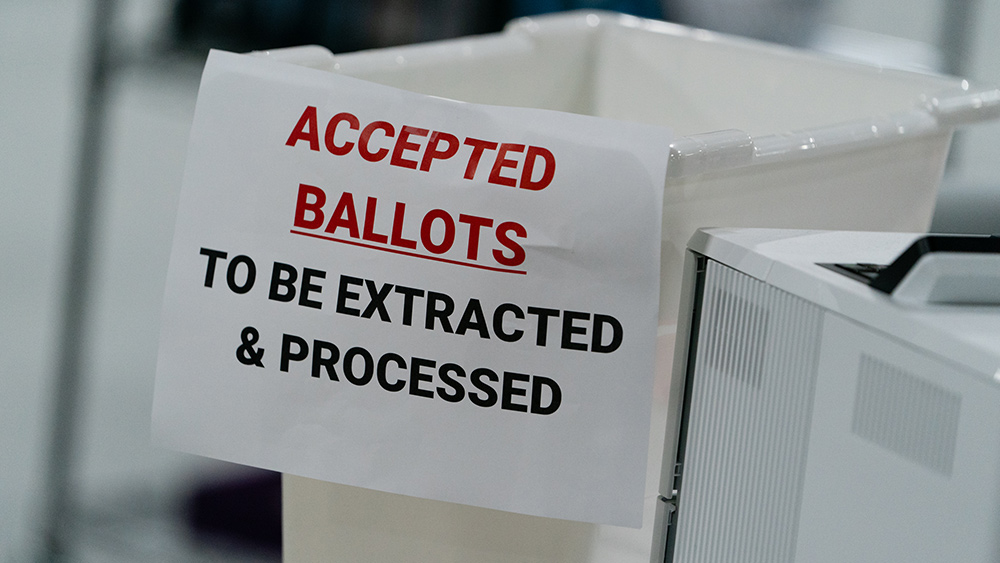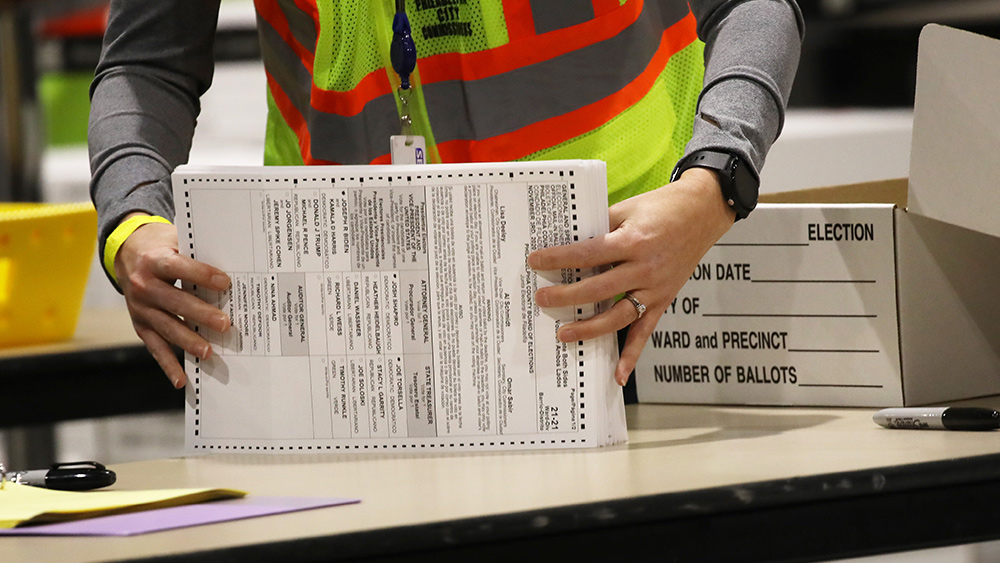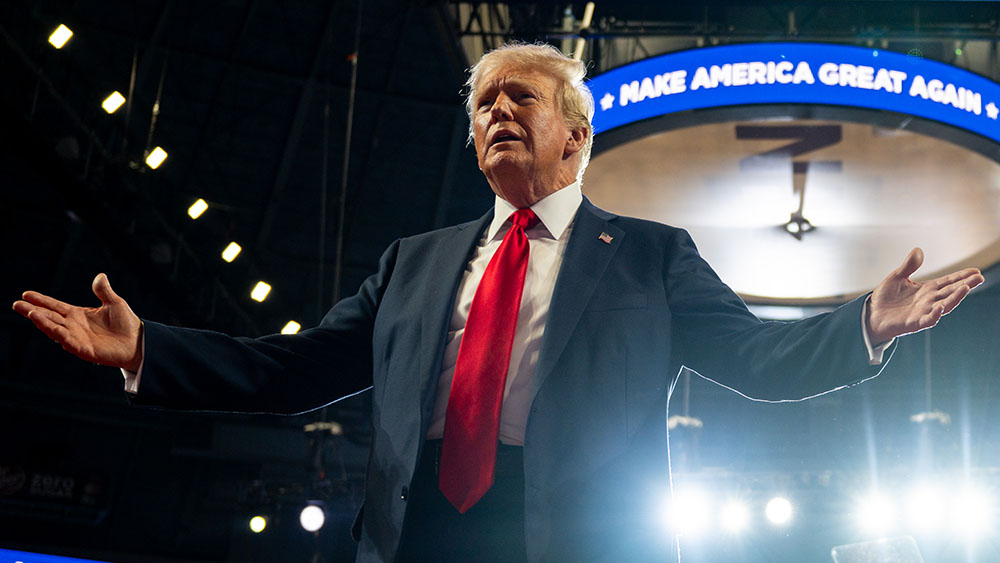Court finds Google guilty of breaking antitrust laws by monopolizing online searches
08/12/2024 / By Belle Carter

The United States District Court for the District of Columbia on Aug. 5 ruled that tech giant Google’s search engine broke antitrust laws by monopolizing online searches.
After reviewing evidence that included testimony from top executives at Google and other Big Tech companies like Microsoft and Apple during last year’s 10-week trial, District Judge Amit Mehta issued his potentially market-shifting decision. The 277-page landmark decision concluded that “Google is a monopolist and it has acted as one to maintain its monopoly.”
The tech giant’s dominance in the search market was evidence of its monopoly as it “enjoys an 89.2 percent share of the market for general search services, which increases to 94.9 percent on mobile devices,” the ruling read. Mehta further said that Google has paid billions of dollars to device manufacturers to ensure its position as the default search engine on smartphones and browsers.
U.S. Attorney General Merrick Garland called the decision “a historic win for the American people,” adding that “no company – no matter how large or influential – is above the law and that the Department of Justice (DOJ) will continue to vigorously enforce our antitrust laws.”
The decision also served as a major victory for U.S. antitrust authorities, who have filed several lawsuits against Big Tech firms to strengthen competition in the industry.
Kent Walker, Google’s president of global affairs, said the company intends to appeal Mehta’s findings. “This decision recognizes that Google offers the best search engine, but concludes that we shouldn’t be allowed to make it easily available,” Walker said on X.
Google’s search engine processes an estimated 8.5 billion queries per day worldwide, which is almost double its daily volume from 12 years ago, according to a recent study released by the tech sector investment firm BOND. (Related: Google executive ADMITS to rigging search results.)
Meanwhile, it is unclear what penalties Google’s parent company Alphabet will face. According to Reuters, a second trial may be held to determine potential fixes, possibly including a breakup of the tech giant.
According to the Associated Press, the case depicted Google as a technological bully that methodically thwarted competition to protect a search engine that has become the centerpiece of a digital advertising machine. The company generated nearly $240 billion in revenue last year.
DOJ lawyers also argued that the monopoly enabled Google to charge advertisers higher prices while also enjoying the luxury of not having to invest more time and money into improving the quality of its search engine.
This is not the only lawsuit Google faces over its advertising technology. A separate one is scheduled to go to trial in September. The tech firm has also been fined billions of euros in monopoly cases in the European Union. Other Big Tech companies, including Amazon, Apple and Meta Platforms, have also been sued by federal antitrust regulators for allegedly operating unlawful monopolies.
Media buyers now looking for opportunities to penetrate search engine industry
In the wake of Google’s landmark antitrust ruling, media buyers look for opportunities to break into the search engine industry, as the decision could make significant room for new players in the ecosystem.
According to Joseph Kerschbaum, senior vice president of DEPT, the ruling will impact Google from a market share perspective, but it doesn’t necessarily mean doomsday for them. “It’s too early to say what kind of impact the ruling will have on Google’s future market share in search and whether it will benefit Microsoft’s Bing. But Microsoft is always hopeful.” he said.
Meanwhile, Google’s second antitrust trial for dominating internet advertising would have more ramifications on the Google ads ecosystem. If it loses again, the DOJ could force it to sell YouTube or other properties, significantly altering the digital advertising landscape.
For performance media services, Horizon Media’s Michael Cohen said their firm will be better positioned to hypothesize on what the antitrust ruling will mean for media costs and overall search market share. “One of the benefits of search investment is that it is relatively fluid and thus can easily move between platforms should the need arise,” he said.
“People will always seek out information; it’s our job to build strategies that meet them where they are,” said Rachel Bucey Klein of digital marketing agency Wpromote. “Ultimately, more competition means more options for our clients.”
Head over to TechGiants.news for more news related Big Tech companies like Google.
Watch the video below that talks about Google restricting search results related to Donald Trump’s assassination.
This video is from the high impact Flix and more channel on Brighteon.com.
More related stories:
Google plans to charge users for new “premium” search features powered by AI.
Report: Google “accidentally” collected and leaked user data, including CHILDREN’s voice data.
Shocking new revelations about Google: ‘They control billions of people.‘
Google censors all AI that generates supposed “hate speech” in Google Play Store.
Google now restricting queries to its AI chatbot Gemini related to elections.
Sources include:
Submit a correction >>
Tagged Under:
Alphabet, antitrust, big government, Big Tech, computing, conspiracy, corruption, cyber war, deception, DOJ, Glitch, Google, google search, illegal monopoly, information technology, internet, Microsoft, monopoly, online searches, rigged, search engine, tech giant, technocrats, Tyranny
This article may contain statements that reflect the opinion of the author
RECENT NEWS & ARTICLES
COPYRIGHT © 2017 RIGGED NEWS



















